Latest News, Events & Updates
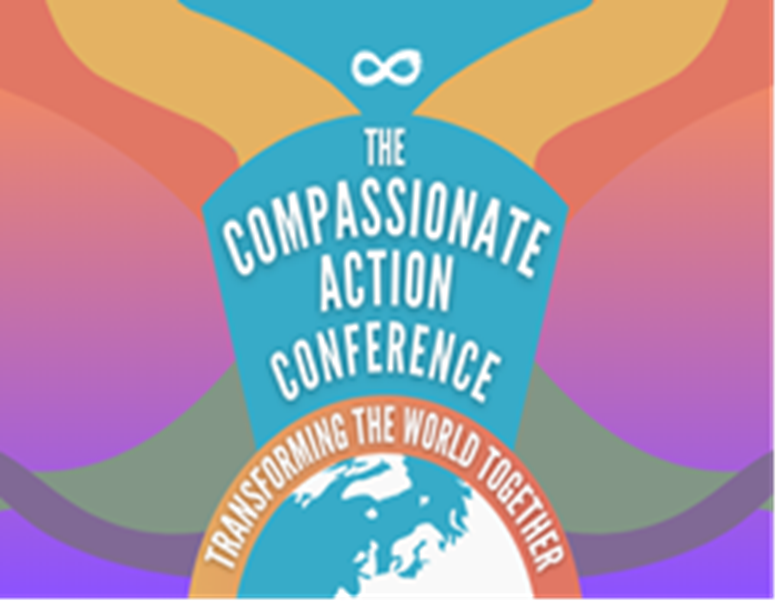
By Lynne Reeder
•
June 3, 2025
The Charter for Compassion recently held its first ever global conference and Compassionate Ballarat was accepted to present. This conference served as a vibrant platform for sharing insights, and actionable ideas to foster a more compassionate and equitable world. You can listen to the presentation on the history and work of Compassionate Ballarat

By Compassion Ballarat
•
May 2, 2025
Do you need help or know someone who does? If you do, then this booklet is for you as it brings together all the food, shelter, support services, and learning services across Ballarat into one place. To make it easier in these cost of living times this booklet provides direct contact details, so in most cases you won’t need to go online. This 2025 version has been updated and so provides many more services than our previous brochure. Let’s look after each other in Ballarat.
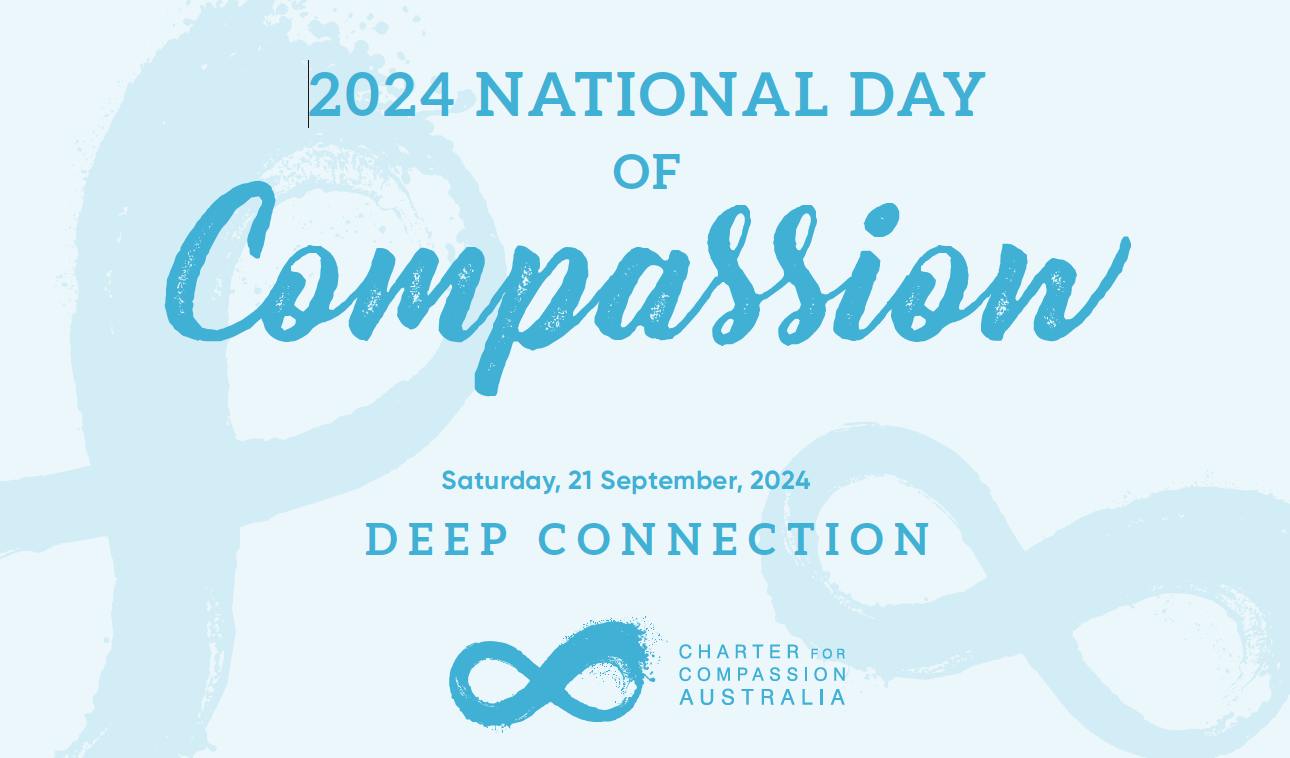
By Lynne Reeder
•
October 7, 2024
Each year the Australian Compassion Council holds a National Day of Compassion, to provide a meaningful opportunity for all Australians to participate in learning about and in practicing compassion. This is the fourth year this National Day has been convened and each National Day has a theme and in 2024 our Theme is Compassion and Deep Connection which featured six facets of deep connection including: Contested spaces - Indigenous Justice - Peace Culture - Repairing Relationships - Innate Connection with our Environment - Dealing with our Distracted World. The National Day started with a launch that included presentations from the CEO of the global Charter for Compassion, Marilyn Turkovich on the Charter’s involvement in the 19th World Summit of Nobel Peace Laureates – with the Australian Charter Ambassador, Hugh Mackay, AO on Deep Connection in Community - and with the National Lead of the Australian Compassion Council, Dr Lynne Reeder on a Compassionate City project entitled Seeds of Compassion along with some inspiring young students and their compassionate wishes for their city. You can access the video recordings of this day here:
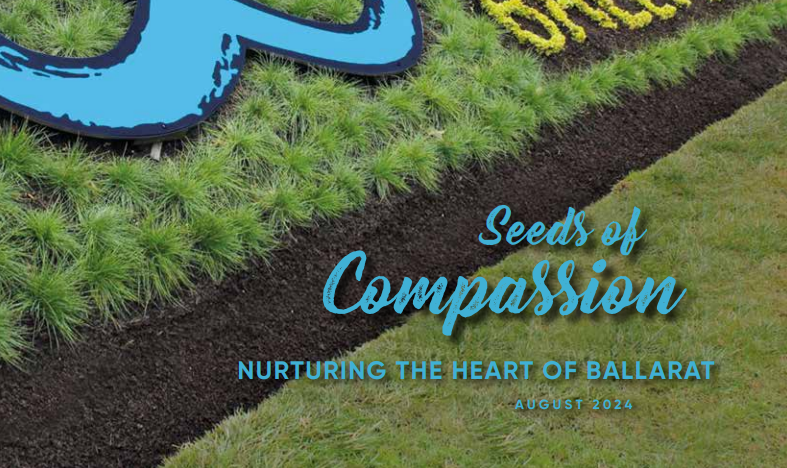
By Brett Allen
•
October 7, 2024
The purpose of this project was to plant seeds of compassion to promote Ballarat as a caring city underpinned by the compassionate wishes of its future leaders. Nearly 100 wishes were received from Ballarat students in Year 6 and Year 10 classes and the collected wishes were subject to a content analysis and were written up under the following five headings: 1) INCLUSION - ACCEPTANCE – BELONGING 2) RESPECT - UNITY – PEACE 3) SAFE – PROTECTED – COMPASSIONATE 4) COHESION – HARMONY – EQUALITY 5) THRIVING – MEANING – POTENTIAL The student’s wishes will be distributed across Ballarat, and they will also be circulated to cities around the world who have signed the Charter for Compassion. By sharing this report globally, we offer these cities a valuable demonstration project for them to consider replicating, and Compassionate Ballarat will continue to work with the City Council to make tangible, as many of these wishes as possible.

By Lynne Reeder
•
September 2, 2024
In 2024 the Compassion and Care Award was won by Maggie Phillips for her participation in the World's Greatest Shave and fundraising for the Leukaemia Foundation to spread awareness and educate us all about the 140,000 families who face blood cancer right now, and that it takes the lives of 16 people every day. Maggie’s efforts in raising money goes towards those individuals in the community suffering, and into research to prevent future pain. Maggie shows true compassion and care for members of the community which we are very grateful for. In 2024 the finalists in this category included: Adelle Weidemann, Charlotte Gibson, Eva Xie, Madelaine Hutchinson and Maggie Phillips. Compassionate Ballarat congratulates all the award finalists and winner for the compassionate work they do in the community and in recognition Ben Kelly, Chair of Compassionate Ballarat personally presented this Award to Maggie.
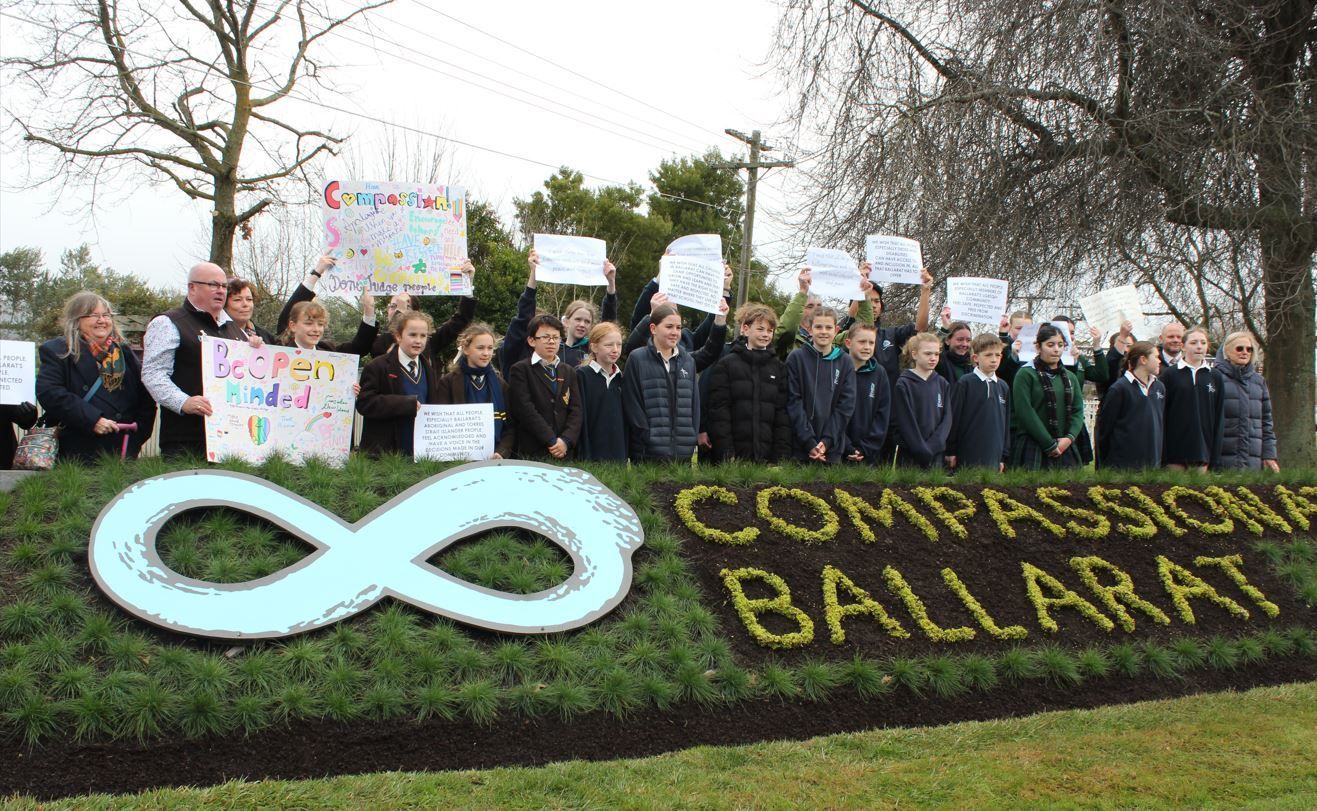
By Lynne Reeder
•
August 2, 2024
With many recent traumas in Ballarat, the City of Ballarat approached Compassionate Ballarat about a healing project that might bring the city together. In response CB suggested a project which involved planting seeds of compassion to promote Ballarat as a caring city through the compassionate wishes of its future leaders. CB members Dr Lynne Reeder and Mary Darcy developed a teacher’s guide to assist schools in gathering those wishes from Year 6 and Year 10 students. On Friday 26 July this project was launched by Mayor Des Hudson who invited the students to hand their written wishes to him, and to other adults present as a ‘call to action’ for the students’ wishes for our city to come true. The outcome of this project will be a book that will comprise all the wishes from participating students and be will be distributed to other compassionate cities Download and read the article. This story has also been covered in the Ballarat Times https://timesnewsgroup.com.au/ballarat/news/a-compassionatecall-to-action/

By Lynne Reeder
•
June 5, 2024
Communities and residents who are supported to connect, do well, making the creation of social contexts for cooperation and caring, timely and important work. Dr Lynne Reeder reflects on Ballarat post recent tragedies. https://www.thecourier.com.au/story/8619926/opinion-focus-on-creating-a-compassionate-ballarat-after-tragedy/ In recent times Ballarat has been in the news for all the wrong reasons – fires – mine collapse, and the deaths of three women, two of which were allegedly at the hands of their male partners. The national media wonders if the city will ever recover. While these recent events have meant that the media spotlight has been on the trauma in our city, it’s also important to acknowledge the complexity of who we are – because in addition to being a city that has recently experienced trauma, Ballarat is also a Welcoming city, a Garden city, an Historic city, a Creative city, a Sporting city, and yes, a Compassionate city. Holding all these identities together as we continue to develop an overarching narrative of our city is worthwhile, because we know that communities and residents who are supported to connect, do well. The need to create social contexts for cooperation and caring is timely and important work. In his latest book of non-fiction, The Way We Are the social scientist Hugh Mackay AO writes that humans are born to cooperate, communicate, connect, and contribute - that being human is a shared experience and not an individual one. He notes that we need our communities to nurture us and provide a sense of belonging. So, it’s vital that our city is not defined by just one aspect of its recent experiences, and compassion helps us to do that because it explores what motivates humans to care for one another. The City of Ballarat formally signed the Charter for Compassion in October 2019 with an aspiration that Ballarat become ……a compassionate city where community connection, health and wellbeing is a high priority - a welcoming, inclusive, and active city – demonstrating our shared values. Compassionate Ballarat is a volunteer group that draws on both the value and science of compassion to guide its work with the city in achieving these aspirations. Many studies, including those by Dr Julian Able in his work on compassionate communities in the UK, have found that communities who can create social safeness are healthier than those who do not, and this in turn results in lower costs by way of reduced usage of its health services. Ballarat already has many community support groups, including Neighbourhood Houses, Good Karma Network, Food is Free, Eureka Mums, Men’s Sheds, Styled for Success, Soup Bus, Compassionate Ballarat, Shower Bus, Walking Groups, Tool Libraries, Community gardens to name but a few, and these groups enable our residents to gather and flourish in social safeness. In The Way We Are, Hugh Mackay writes that it’s easy to wring our hands about the state of the nation, but not so easy to admit that it’s our own behaviour that helps to determine the shape our society is in. Therefore, the challenge for us all is to reflect on how, our behaviour and that of the groups we belong to, are contributing to the Ballarat we want to create - so that indeed we can live in a caring and compassionate city with an overarching identity of one that meets the social safety needs of all its residents.
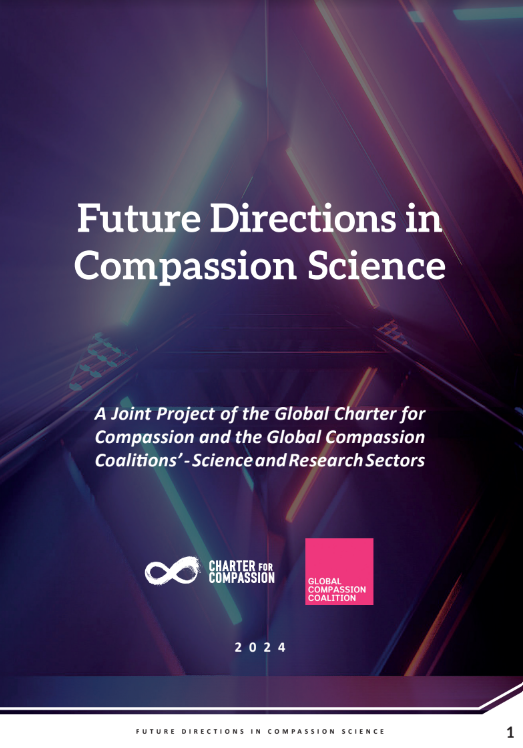
By Lynne Reeder
•
April 18, 2024
A new report on the science of compassion by Dr Lynne Reeder and her international research colleague Dr Marcela Matos on the Future Directions in Compassion Science has just been released: Some of the key points from this report include: Research in compassion science is consistently finding that the motivation of compassion fosters improved mental and physical health, and has profound effects on social relationships in families, groups, communities and between communities. Many scientific studies show that different motives organise our minds and bodies quite differently. For example, the way our attention is directed, our thoughts are focused, and our intended behaviours are enacted, differ significantly as to whether our motives are - competitive self-focused, anger or fear based - or cooperative and compassion based. There are many practical applications of compassion, including for business and commerce – e.g. studies conducted by Assoc Prof Daniel Martin have found that compassion training can improve the psychological safety and well-being of employees and therefore mitigate the negative behaviours within businesses that can disrupt valuable innovations. Prof Tania Singer, Director of the Social Neuroscience Lab, Max Planck Society, Germany highlights how compassion training works. Her world leading studies which include the use of fMRI’s in assessing differences before and after compassion training - show that it works by supporting the upregulation of our systems of care and affiliation…in compassion you accept the reality that is out there, but you activate the system which will allow you to be resilient against the potential negative effect of overwhelm and empathic distress. Read the full report here Read a 2 page summary of the report here
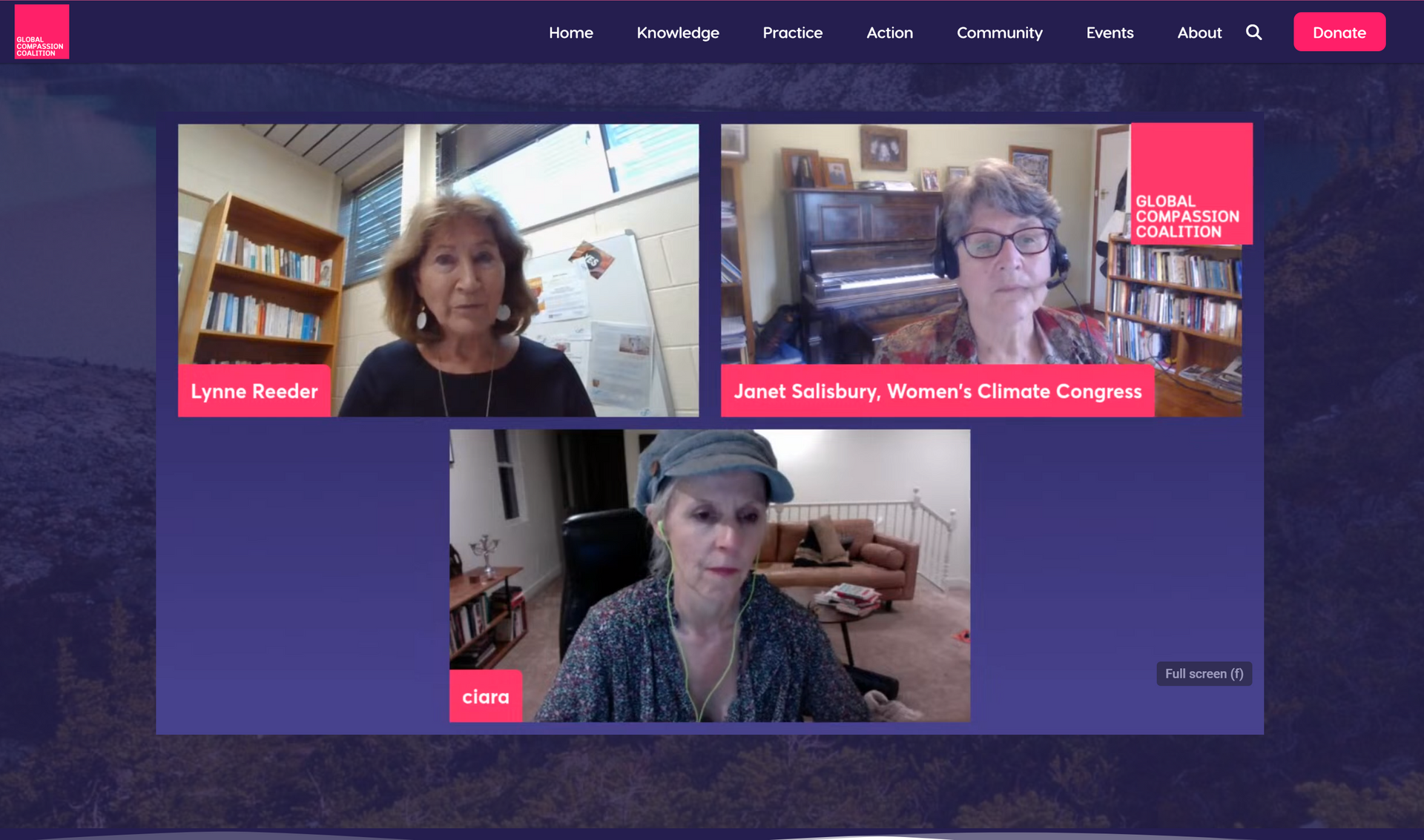
By Compassion Ballarat
•
March 18, 2024
with Ciara Bryne, Dr. Janet Salisbury and Dr. Lynne Reeder In early February, researchers from the European Union's Copernicus Climate Change Service presented data indicating that throughout 2023, temperatures surpassed the critical threshold of a 1.5-degree increase above pre-industrial levels. This threshold is significant as it is the limit global leaders committed to not exceed in order to prevent the most severe impacts of climate change. With this new evidence highlighting the failure to make sufficient progress in combating climate change, it becomes imperative to explore the obstacles hindering our advancement. We must delve into the psychological, logistical, financial, economic, and political challenges that are impeding our ability to take significant strides toward safeguarding our future and the planet from the escalating climate crisis. https://www.globalcompassioncoalition.org/events/target-1-5-degrees-what-are-the-barriers/
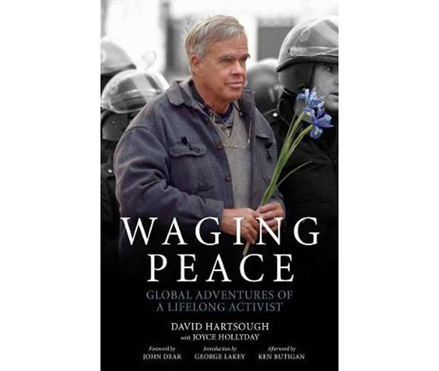
By Compassion Ballarat
•
February 6, 2024
21 January 2024 - Compassionate Ballarat partnered with Let’s Talk Peace Ballarat to contribute a webinar discussion as part of the Martin Luther King David 40 Days of Peace program which is an annual event organised by the global Charter for Compassion. This event was entitled Turning ‘the dream' of Peace into Action, One Compassionate Step at a Time and featured speakers David Hartsough, Founder of World Beyond War; Tim Hollo, Executive Director of the Green Institute; and Gem Romuld, National Director, ICAN. David Hartsough has been working actively across the globe for nonviolent social change and peaceful resolution of conflicts since his personal encounter with Dr Martin Luther King Jr. and he shared his experiences on practicing nonviolence and in taking tangible and compassionate steps toward a peaceful world during. You can listen to the inspiring presentations here: 40 Days of Peace - Turning ‘The Dream’ of Peace into Action One Compassionate Step at a Time ( youtube.com )
